
Who we are
Founding directors
- Dr Olivia Ball

- Olivia is a highly qualified human rights advocate with expertise in human rights reporting and teaching, policy, research and campaigning, refugee trauma counselling and rights-based development, gained in diverse international roles in academia and the NGO sector. She is recognised for published writing and editing, including RightsBase.org and the acclaimed No-Nonsense Guide to Human Rights.
- Olivia has a Masters in human rights from London University and a PhD in human rights from Monash Law School.
- Nick Toonen OAM

- Nick is an experienced non-profit leader who's passionate about civil society organisations that work towards change. His 25 years of non-profit experience spans leadership of health, human rights, social service and community education organisations.
- Nick co-founded the Tasmanian Gay and Lesbian Rights Group (TGLRG) in 1988, and took a leading role in the 9 year campaign to remove state laws discriminating against gay men. On behalf of the TGLRG he took the first Australian complaint under the First Optional Protocol to the ICCPR. In 1994 the UN Human Rights Committee found that the Tasmanian laws violated his human rights under the ICCPR. The decision (combined with the effect of the ongoing campaign) secured the enactment of the federal Human Rights (Sexual Conduct) Act 1994, and then the repeal of the offending state laws by the Tasmanian parliament in 1997.
- In 2003 Nick was awarded the Medal of the Order of Australia for service to the community as a human rights advocate, particularly through promoting the rights of gay and lesbian people.
Advisory Council
- Prof. Hilary Charlesworth
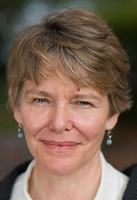
- Hilary Charlesworth is Laureate Professor at Melbourne Law School and Distinguished Professor in the Regulatory Institutions Network at the Australian National University.
- She has researched and worked on ways to implement international human rights standards and chaired the Australian Capital Territory government's inquiry into a bill of rights, which led to the ACT Human Rights Act 2004. She acted as judge ad hoc of the International Court of Justice for the Whaling in the Antarctic case (Australia v Japan), and is judge ad hoc in the case Arbitral Award of 3 October 1899 (Guyana v Venezuela).
- Prof. Mary Crock
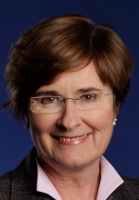
- Mary Crock is Professor of Public Law at Sydney University. Educated at Melbourne University, she has worked in the area of immigration and refugee law since 1985. With broad interests in human rights, she has served in executive positions for the Law Council of Australia and the Refugee Council of Australia; and worked as adviser to the Australian Senate (Inquiry into Australia's Refugee and Humanitarian Program, 2000) and as consultant to the Human Rights and Equal Opportunity Commission (on immigration detention). In and after 1989 she helped to establish and run the Victorian Immigration Advice and Rights Centre Inc in Melbourne, now the Refugee and Immigration Law Centre (Vic). She has written extensively on issues related to immigration and refugee law, authoring 8 books and many chapters and articles.
- She is currently working on 3 large research projects. One is a comparative law and policy project run in conjunction with Harvard University and the London School of Economics (and a range of other universities in Australia and overseas). The second concerns refugee children and youth, while the third studies refugees with disability, in collaboration with UNHCR and the Women's Commission for Refugees.
- Rodney Croome AM
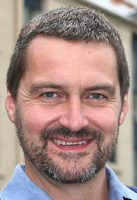
- Rodney Croome will be known to many LGBTIQA+ Australians as a long-time advocate. As a spokesperson for Equality Tasmania Rodney fronted the long campaign to decriminalise homosexuality in Tasmania. That campaign saw Tasmanian activists take their case for equality not only to the parliament and people of Tasmania, but to the UN, the Federal Government and the High Court. The island state now has some of Australia's best laws, policies and attitudes on homosexuality.
- Rodney was also founding president and long-term board member of Tasmanian LGBTIQA+ support organisation Working It Out project officer of the Human Rights and Equal Opportunity Commission's rural LGBTIQA+ youth network, Outlink, and Co-convenor of the Australia Council for Lesbian and Gay Rights, National Director of Australian Marriage Equality and a board member of Just.Equal Australia. Rodney's awards include the 1991 Tasmanian Humanitarian of the Year Award, Chris Carter Memorial Award, Melbourne Rainbow Award, Tasmania Day Community Service Award, a Centenary of Federation Medal, and an Order of Australia. In 2015 Rodney was named Tasmanian Australian of the Year.
- Elizabeth Evatt AC
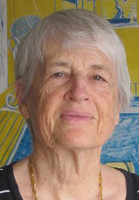
- Elizabeth Evatt has practiced law in Australia and England. She has held a number of positions, including that of Chief Judge of the Family Court of Australia, 1976 to 1988, and President of the Australian Law Reform Commission, 1988 to 1993. From 1984 to 1992 she was a member of the United Nations Committee on the Elimination of Discrimination Against Women; she chaired the Committee from 1989-1991. From 1993 to 2000 she was a member of the UN Human Rights Committee. In 2018 she was elected as an Honorary Life Commissioner of the International Commission of Jurists, based in Geneva.
- She has been a patron and member of the Community Justice Coalition (Sydney) since its inception in 2009. Since 2016 she has been a Board member of Sisterhood is Global. She is a member of the Women's Advisory Committee of the NSW Corrective Services Commission.
- Prof. Sarah Joseph
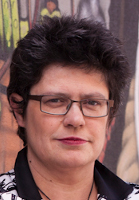
- Sarah Joseph is a Professor of Human Rights Law at Griffith University in Brisbane. Her research interests lie largely in the area of international human rights law, with publications, for example, on the intersection of human rights issues and, for example, global trade regimes, multinational corporations, intellectual property, and terrorism. She has also written articles on freedom of speech and the right of self-determination. She is the main author of the key book on the ICCPR, The International Covenant on Civil and Political Rights: Cases Materials and Commentary (OUP, 3rd ed, 2013), and is an expert on the case law arising from that treaty. She is a regular contributor to media debate on human rights issues. Her latest research lies in the area of human rights and sport. She is also an expert on Australian constitutional law. You can find her on twitter at @profsarahj
- Prof. Patrick Keyzer
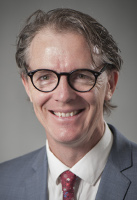
- Patrick Keyzer is Research Professor in Law and Justice at the Thomas More Law School at the Australian Catholic University. He is a human rights lawyer, author and editor. In 2010, he was shortlisted for an Australian Human Rights Award for his extensive pro bono work on behalf of First Nations people, people with disability, and prisoners. He has appeared as counsel in a number of Australian superior courts including the High Court, and he has prepared a number of communications to the UN Human Rights Committee.
- Prof. Ron McCallum AO
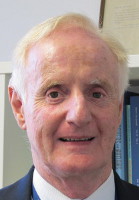
- Emeritus Professor Ron McCallum studied law at Monash University in Melbourne and completed a Master of Laws at Queen's University, Canada. A labour & employment law specialist, he taught at Monash for 18 years. In 1993 he was appointed a professor at Sydney University - the first totally blind person to be made a full professor at an Australian or New Zealand university. He served as Dean of Sydney Law School 2002-07.
- Ron is an independent Director of Ability First Australia. In 2011, he was Senior Australian of the Year.
- Ron was nominated by the Australian government to stand as an independent expert for the UN Committee on the Rights of Persons with Disabilities when that Committee was first established in 2008. Its primary function is to monitor implementation of the UN Convention on the Rights of Persons with Disabilities. Ron served as inaugural member, then Chair of this Committee and as Vice-Chair. He also served as the Chair of the UN Committee of the Chairs of all of the UN Treaty Bodies in 2011-2012.
- Nick Poynder
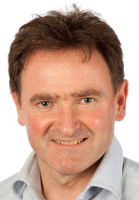
- Nick Poynder is a Sydney-based barrister. He is originally from Tasmania where he studied at the University of Tasmania and was admitted to practice in 1984. He moved to Melbourne in 1986 and was admitted to the Victorian Bar in September 1990. Nick was a Senior Legal Officer with the Human Rights and Equal Opportunity Commission from 1996-1998. Nick joined the NSW Bar in 1998 and he continues a practice at the Victorian Bar.
- Nick's practice is in administrative law, primarily migration. He is a registered migration agent and appears at all levels up to the High Court. He is one of Australia's most experienced lawyers representing people lodging communications with the United Nations human rights treaty committees, among them A v Australia (1997); Winata & Li v Australia (2001); C v Australia (2002); Baban v Australia (2003), Bakhtiyari & Bakhtiyari v Australia (2003); D & E v Australia (2006) and Kwok v Australia (2009).
- Prof. Ben Saul
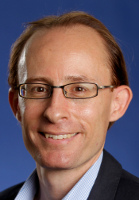
- Professor Ben Saul is the Challis Chair of International Law at The University of Sydney and the United Nations Special Rapporteur on the promotion and protection of human rights and fundamental freedoms while countering terrorism. He has expertise in public international law, counter-terrorism law, human rights and refugee law, international humanitarian law, and international criminal law. He has published 20 books and hundreds of scholarly articles. He has taught at Oxford, Harvard, The Hague and Xiamen Academies of International Law, and in Europe and Asia; practised in international tribunals; advised governments, NGOs and the UN; and worked in over 35 countries.
- Chris Sidoti
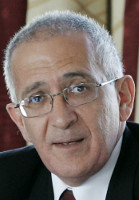
- Chris Sidoti is a human rights lawyer, advocate and teacher. Since July 2021, he has been a Commissioner on the United Nations Human Rights Council’s Independent International Commission of Inquiry on the Occupied Palestinian Territory, including East Jerusalem, and Israel. He is also a member of the Special Advisory Council for Myanmar and was a member of the United Nations Human Rights Council’s Independent International Fact Finding Mission on Myanmar from 2017 to 2019. He is an adjunct professor at the Australian Catholic University. He currently works from Sydney, Australia.
- He has been Australian Human Rights Commissioner (1995-2000) and Australian Law Reform Commissioner (1992-1995). He has also worked in non-government organisations, including as director of the International Service for Human Rights, based in Geneva, Switzerland, and for the Human Rights Council of Australia and the Australian Catholic Commission for Justice and Peace. In 2007-08 he was the independent chair of the United Kingdom Government’s Northern Ireland Bill of Rights Forum.